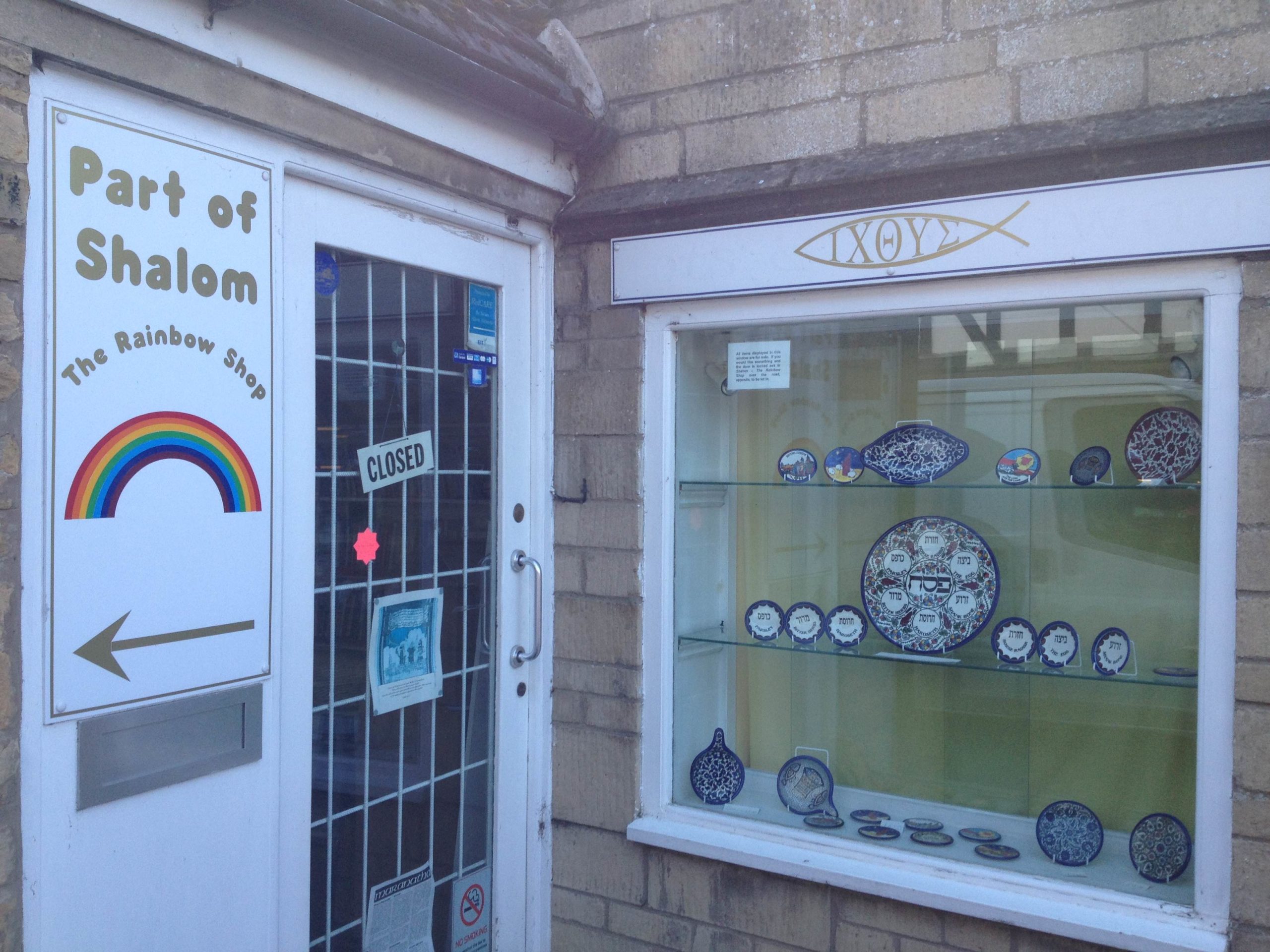
Finding Jesus in England
A Jesus fish hangs over the door, which, like all doors in this town, is closed after 16:00. These old stone villages, held together by ivy, are so tasteful that they cannot imagine anything a person might do after that hour—or imagine the contemporary semiotic significance of the rainbow.
I imagine the gay-friendly, Jew-loving Jesus conjured up by a literal reading of this display. He would like me better than Pat Robertson. If asked about my queer friends, this Shalom-hearted Jesus would say, “Who am I to judge?” after the fashion of the current pope. I like him too, of course. This kind of savior I can get behind.
We all create Jesus in our image, whether we believe in him or not. The Jesus of this shop seems beneficent, if unavailable at off hours. He would have cream tea with us in Stow-on-the-Wold, reading the Kipling verses off the wall, or join our family seder, where he would pound the table to every song. He could drink from Elijah’s Cup and no one would know the difference.
The Lithuanian Jesus came not to bring peace, but a sword; he consecrated hatreds for centuries until exiled by the Soviets. Only recently returned, and more moderate now, I hope he enjoyed the Pride Parade down Vilnius’ main thoroughfare, which stretched rainbows across a bloodstained city.
East is East and West is West, except at Baltic Pride and here in “Shalom: The Rainbow Shop.” As a greeting and an ushering out, “Shalom” is its own cheerful paradox. Shalom, Jesus! Farewell and welcome back. I have found you.
Ester Bloom’s writing has appeared in Slate, Salon, Bite: An Anthology of Flash Fiction, Creative Non-Fiction, the Hairpin, the Awl, the Morning News, Nerve, PANK, Bluestem, Phoebe, Zone 3, and numerous other venues. She blogs on culture for the Huffington Post and is a columnist for Trachodon Magazine and the Billfold.



